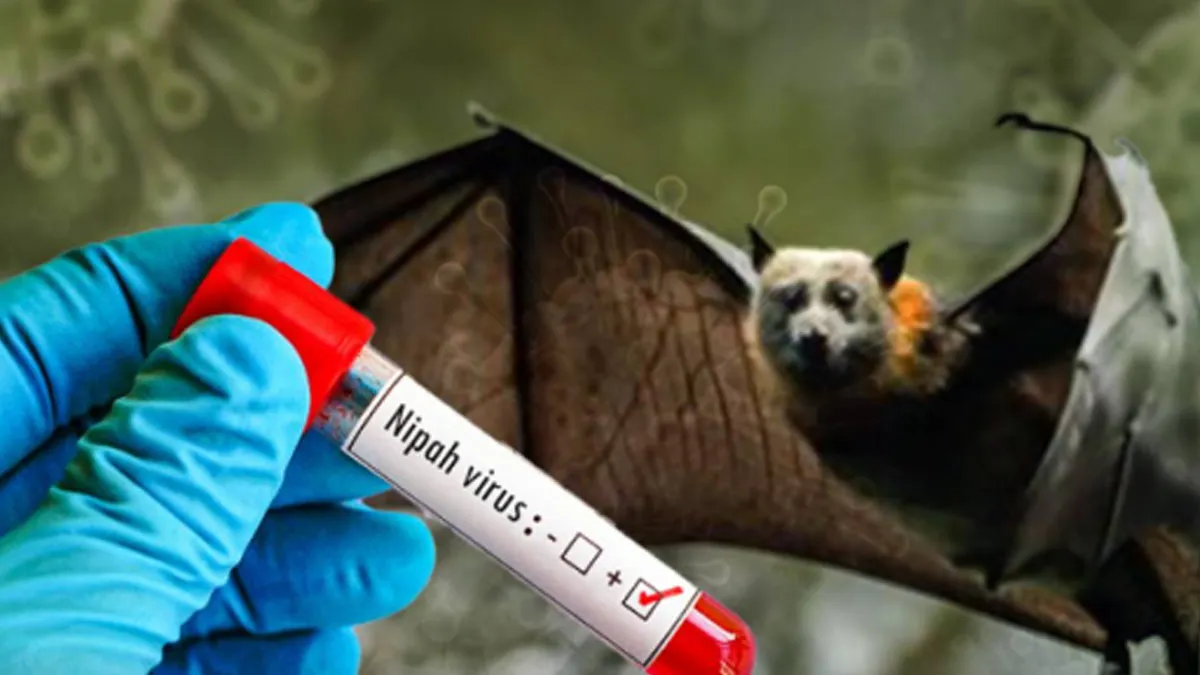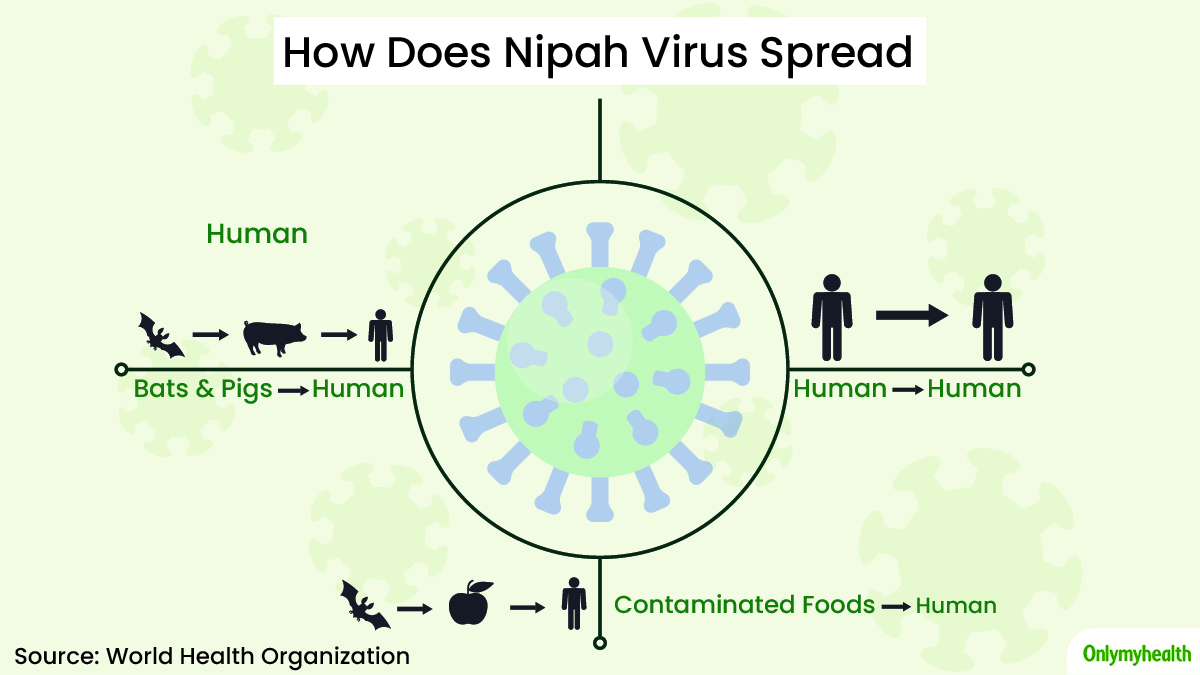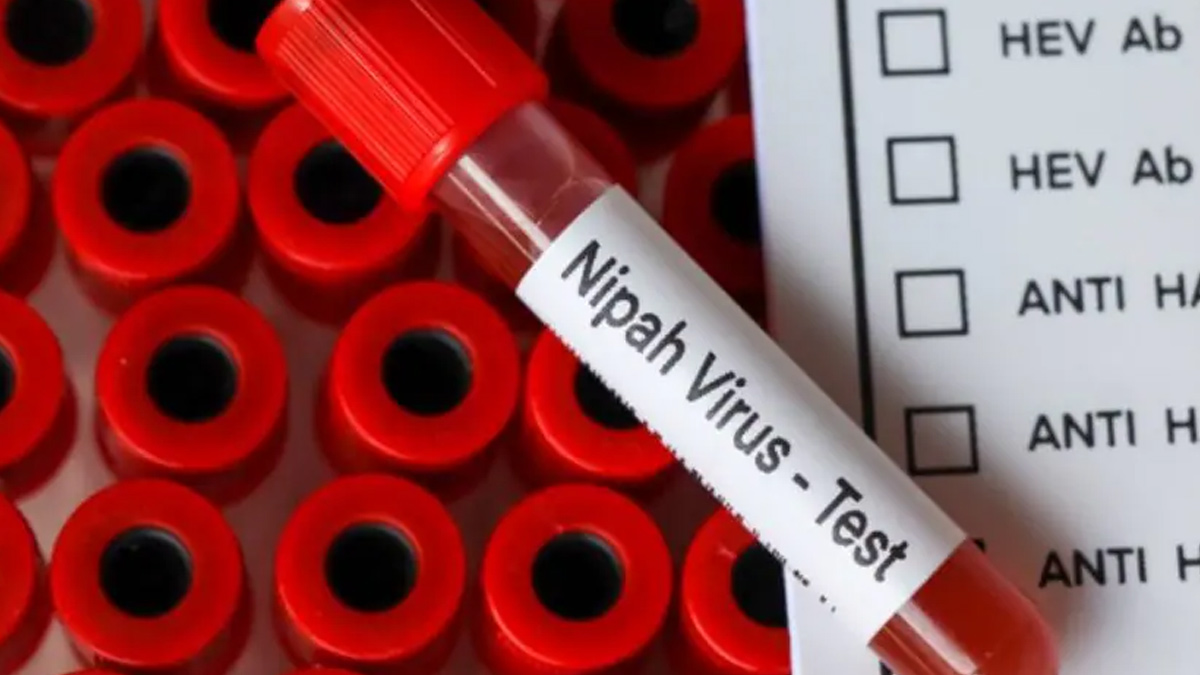
As Kerala braces for the upcoming bat breeding season, the State’s Health Department has ramped up a high alert in five districts identified as potential hotspots for the Nipah virus: Kozhikode, Malappuram, Kannur, Wayanad, and Ernakulam. These proactive measures come in response to fresh warnings from the Kerala One Health Centre for Nipah Research, based in Kozhikode, emphasising the need for increased vigilance.
Table of Content:-
In an exclusive interaction with the editorial team of Onlymyhealth, Dr Shrey Kumar Srivastav, Senior Consultant, Sharda Hospital - Noida, explained everything you need to know about this virus and ways to stay safe. Here is everything he shared with us.
Understanding the Nipah Virus
Nipah virus is a highly infectious zoonotic disease, meaning it spreads from animals to humans. Fruit bats of the Pteropodidae family, commonly known as flying foxes, are the primary carriers of the virus. The virus can also spread through direct contact with infected animals, contaminated food, or human-to-human transmission.

According to the World Health Organization (WHO), Nipah infection can manifest in various ways, ranging from mild or asymptomatic cases to severe complications such as acute respiratory distress and fatal encephalitis (brain inflammation). The mortality rate of Nipah virus outbreaks has historically been high, making timely awareness and prevention crucial.
Also Read: Do Instant Noodles Impact Fertility? What You Need to Know
Why These Districts Are on High Alert
The five districts currently under heightened surveillance—Kozhikode, Malappuram, Kannur, Wayanad, and Ernakulam—have previously recorded cases of Nipah virus infections, either in humans or in fruit bats. Given the recurrence of the virus in these regions, Kerala’s health authorities are taking proactive steps to mitigate the risk of another outbreak.
How to Stay Safe
With the growing concern over Nipah virus transmission, here are some expert-approved key safety measures to follow:

Avoid Consumption of Contaminated Food and Drinks
Refrain from consuming fruits, particularly half-eaten ones, that may have been exposed to fruit bats.
Avoid drinking raw date palm sap, as it can be contaminated by bat saliva or urine.
Practice Good Hygiene
Wash hands thoroughly with soap and water, especially after handling animals or visiting farms.
Maintain proper hygiene when handling food and ensure thorough cooking of animal products.
Minimise Direct Contact with Bats and Infected Individuals
Avoid close contact with sick animals and suspected carriers of the virus.
If someone is displaying symptoms such as fever, respiratory distress, or neurological issues, seek medical attention immediately and maintain a safe distance.
Final Thoughts
While Kerala’s proactive response to the Nipah threat is commendable, individual awareness and precautionary measures are equally crucial. With the bat breeding season approaching, staying informed and taking preventive steps can help minimise the risk of an outbreak. Public cooperation, early detection, and adherence to safety protocols will play a pivotal role in keeping communities safe from this deadly virus.
Also watch this video
How we keep this article up to date:
We work with experts and keep a close eye on the latest in health and wellness. Whenever there is a new research or helpful information, we update our articles with accurate and useful advice.
Current Version